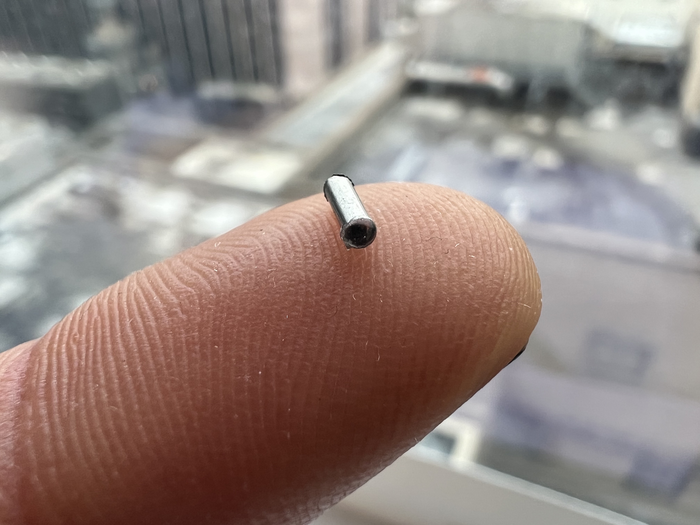Houston Methodist researchers have developed an implantable nanofluidic device that could shrink pancreatic cancer tumors.
Pancreatic cancer is one of the fiercest and most difficult cancers to cure. The research team discovered a means to administer immunotherapy straight into the tumor through a tinier device than a grain of rice.

The Small Device NDES
The team delivered CD40 monoclonal antibodies (mAb), a promising immunotherapeutic agent, using their implantable nanofluidic device called nanofluidic drug-eluting seed (NDES).
They discovered that continuous low-dose delivery of the CD40 mAb reduced tumors at a dosage four times lower than that of conventional systemic immunotherapy. This was learned through experiments using murine models.
"One of the most exciting findings was that even though the NDES device was only inserted in one of two tumors in the same animal model, we noted shrinkage in the tumor without the device," Corrine Ying Xuan Chua, Ph.D., co-corresponding author of the study, said in a statement.
"This means that local treatment with immunotherapy was able to activate the immune response to target other tumors. In fact, one animal model remained tumor-free for the 100-days of continued observation."
Pancreatic ductal adenocarcinoma is usually found at an advanced stage, with over 85% of patients having the metastatic disease at diagnosis, according to the team.
Metastatic disease refers to the spread of cancer cells from one part of the body to another via the bloodstream or lymphatic system.
However, Houston Methodist researchers have discovered a method to concentrate immunotherapy delivery right into the tumor, giving the body superior defense against harmful medications and reducing side effects.
As a result, patients undergoing treatment may see an improvement in their quality of life.
Revolutionizing Cancer Treatment
According to Alessandro Grattoni, Ph.D., co-corresponding author and head of the Department of Nanomedicine at Houston Methodist Research Institute, the team's objective is to revolutionize the way cancer is treated.
They believe employing this device will provide a better-targeted therapy with less medication by effectively accessing the pancreatic tumor.
The NDES device consists of a stainless steel drug reservoir with nanochannels, forming a membrane that permits sustained diffusion when the drug is released.
Intratumoral drug-eluting implants for cancer therapy are available from other medical technology companies. However, they are only meant to be used temporarily.
To avoid repeated systemic treatment, the Houston Methodist nanofluidic device is designed for long-term controlled and sustained release.
Researchers expect to make this a practical alternative for cancer patients within the next five years. However, further research is still needed to determine the efficacy and safety of this delivery technique.
Houston Methodist's nanomedicine lab is studying similar nanofluidic delivery technology for controlled and long-term drug delivery and cell transplantation in treating chronic diseases on the International Space Station.
The findings of this work were published in the journal Advanced Science.
Related Article : DeepMind's AlphaFold AI Develops Molecular Syringe That Can Help Cure Cancer, Treat Tumors

ⓒ 2025 TECHTIMES.com All rights reserved. Do not reproduce without permission.




